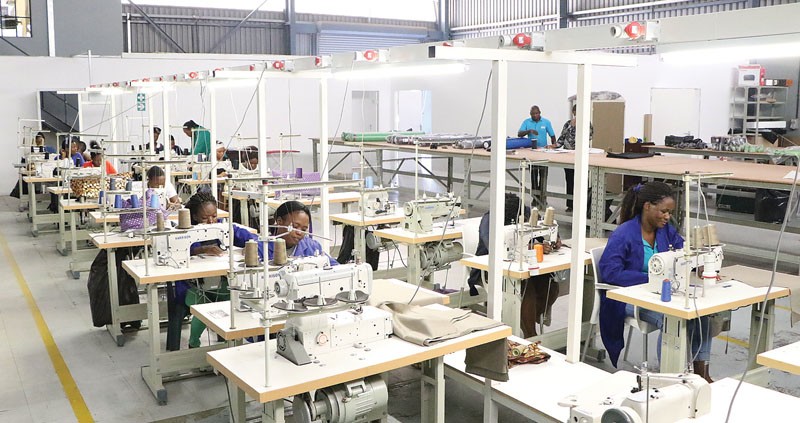AGOA dream dims for local textile sector
Mbongeni Mguni | Friday August 30, 2019 12:38


Textiles are Botswana’s primary export under AGOA.
From a peak of P1.8 billion in textile AGOA exports by local firms in 2008, the figure last year was estimated at about P30,000. In the same year, however, total textile exports were pegged at P233 million or 29% higher than 2017, showing that exports were growing but not to the US. Investment, Trade and Industry minister, Bogolo Kenewendo told BusinessWeek that the US remained an important market for local textiles, despite the challenges faced by producers.
“It’s a very difficult market and the requirements on the business can be quite taxing,” she said, when fielding questions during a media briefing recently.
“We are also competing with the much cheaper South East Asia countries for that market.
“We have seen that our textile ends up being more expensive and we get priced out of the market.
“Our strategy is to see how to remain competitive in that market and this involves issues of labour productivity, costs of utilities and others.” The ministry’s permanent secretary, Peggy Serame told BusinessWeek that the AGOA strategy launched in 2017 was tackling the difficulties faced by local producers in exporting to the US.
“AGOA is still relevant, but there are challenges such as scaling up by firms because that is a large market which requires consistent supply at consistent quality,” she said.
“The textile association is also working with enterprises to ensure that we will export again to the US.”
While the US remains the most lucrative market for local textile players, issues such as scale, capacity, distance, costs and high competition for the American market, have dissuaded nearly all.
In addition, government’s reluctance to provide direct export incentives in the vein of the P38 million bail-out that ran from 2009 to 2011, saw the number of AGOA textile export firms drop from 13 before 2009, to just one by last year. That company, Carapparel Botswana, relocated to Lesotho which provides its AGOA textile exporters with a range of state-funded incentives.
Lesotho, however, is heavily criticised for providing the incentives despite limited benefits to Basotho, with the factories there enjoying state support, but paying ‘slave wages’ and remitting little to national coffers.
Here, government has resisted similar demands from the local textile sector and instead focussed on opening local and regional markets for producers. Kenewendo told journalists at the recent brief that the ministry had been able to help six textile firms gain selection to supply Cash Bazaar Retail stores.The ministry’s lobbying has seen retail chains such as Edcon, Choppies and Studio 88 open up to the local textile sector, supporting citizen enterprise and jobs.Government has also listed textiles as one of its priority areas in the recently launched Revised National Export Strategy.
The AGOA strategy recommends that potential exporters be profiled and these profiles shared with the Botswana Embassy in the US.
Other interventions could include participation of firms at international trade events, training initiatives, buy-seller linkage programmes and duty or rebates on sourcing of raw materials.
